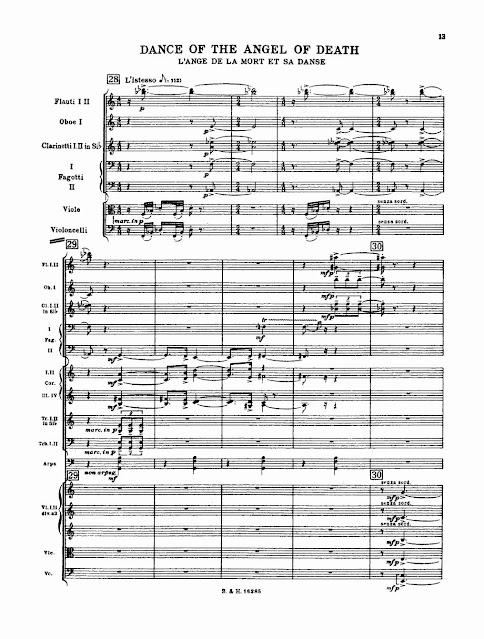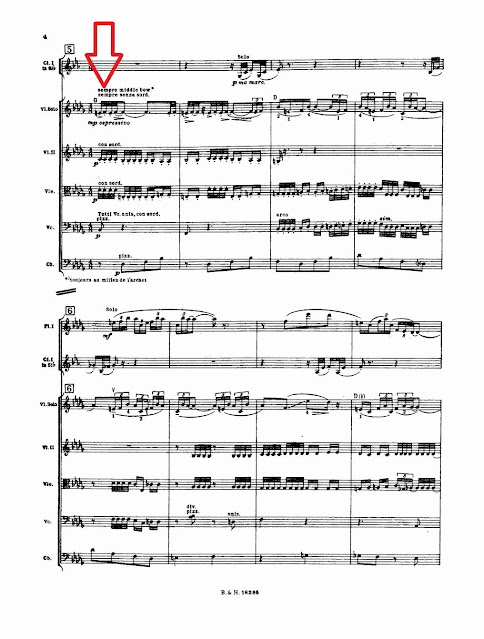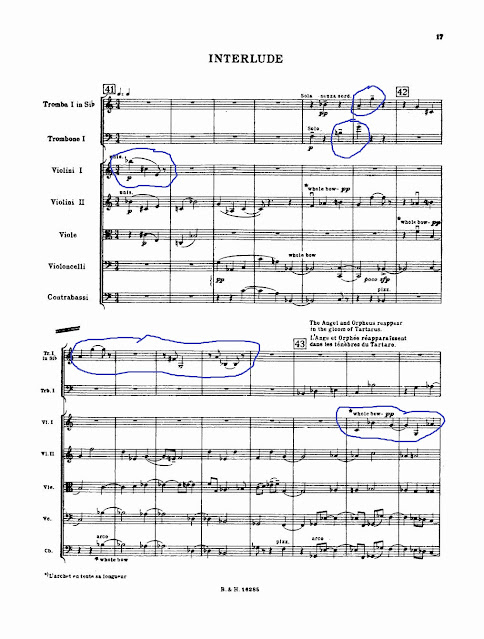CCCXXV. STRAVINSKY, Igor (1882-1971)
To confine oneself to only knowing the three famous ballets from the teens (The Firebird [1910]; Petroushka [1911] and Le Sacre du Printemps [1913]) is to deny the pleasure of getting to know the later ones -- from the so-called "Neoclassical" period ... they have much in common with the earlier works -- especially the motion of music accompanying bodies in motion.
1. Orphée
A harp imitates the plucking of the Lyre, in a 4/2 dirge-like passage.
2. Air de danse
Suddenly a gust of wind; and this persistant melody in the violins, using only two notes at first -- a third is added, then a fourth:
3. L'ange de la mort et sa danse
A somewhat disjointed dance leads to a moaning trombone solo, as Hades leads Orpheus to the underworld.
4. Interlude
5. The Furies
Stravinsky conveys the Furies' agitation with a marking of Agitato!
Over a rhythmic A Major Seventh chord the violins play an intense chopped-up melody:
6. Air de danse
Again, the harp imitates Orpheus's Lyre ...
7. Pas d'action
Hades -- moved by Orpheus's tender playing -- has returned Eurydice to him. But the music only portends sadness and separation.
8. Pas de deux
As Orpheus and Eurydice dance in front of the curtain, Stravinsky begins the mournful music in unison and very gradually it gathers momentum until the fateful moment that Orpheus removes his mask, looks upon his beloved, who immediately drops dead.
Stravinsky, after a measure of silence, responds:
9. Interlude
Discordant brass:
10. Pas d'action
The Bacchantes tear Orpheus apart.
11. Apothéose d'Orphée





















No comments:
Post a Comment